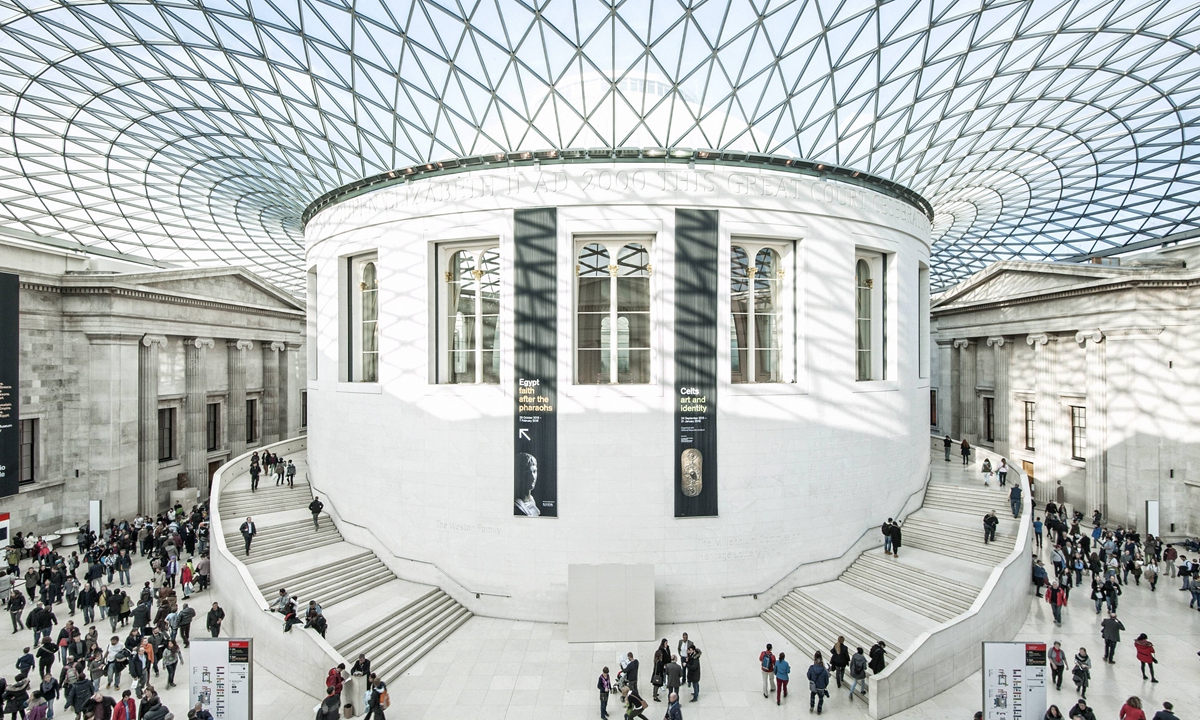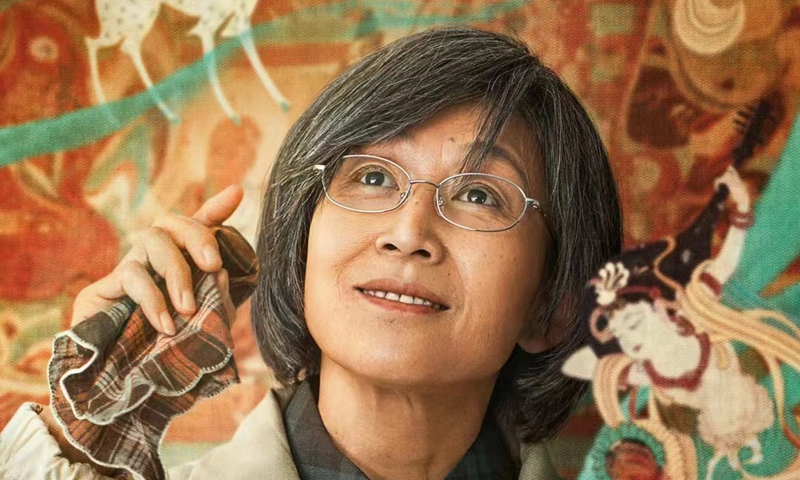
The British Museum Photo:VCG
A recent interview with Greek Prime Minister Kyriakos Mitsotakis, in which he urged the British Museum to return the Parthenon Marbles, has ignited a fervent response on Chinese social media, echoing a deep-seated desire for the British Museum to repatriate China's lost treasures."It's as if I told you that you would cut the Mona Lisa in half, and you will have half of it at the Louvre and half of it at the British Museum, do you think your viewers would appreciate the beauty of the painting in such a way? Well, this is exactly what happened with the Parthenon sculptures," Mitsotakis said in an interview with BBC on Sunday ahead of his visit to British Prime Minister Rishi Sunak this week.
Mitsotakis, drawing a poignant parallel between the Parthenon Marbles and the Mona Lisa, emphasized the essence of "reunification" in ownership disputes. His plea resonated not only with Greece but also with numerous countries grappling with similar requests for the return of looted artifacts, including China.
The sentiment expressed by Chinese netizens reflects their earnest hope for the British Museum to promptly restore China's cultural heritage.
China's persistent grassroots calls for the return of lost artifacts in the aftermath of the British Museum theft scandal that shook the world may be hard to achieve due to Britain's domestic rules and other challenges, but they serve as a testament to the power of collective voices, which might make a dent in international morality.
The notion, as articulated by Mitsotakis, that reunification aims for elevated cultural protection is particularly relevant.
Statistics reveal the staggering extent of Chinese artifacts held by the British Museum, emphasizing the urgent need for repatriation. With over 23,000 Chinese items currently collected by the British Museum, including numerous Buddhist sculptures and the Yongle Encyclopedia, a largely lost Chinese encyclopedia commissioned by the Yongle Emperor of the Ming Dynasty (1368-1644), this cultural diaspora mirrors the plight of Greece's Parthenon marble sculptures.
The commitment of China to cultural preservation is evident, with officials from China's Minister of Culture and Tourism highlighting over 6,500 officially registered museums in 2022, 90 percent of which have free admission. Foreign experts researching China's cultural heritage consistently marvel at the nation's vast museum landscape and its dedicated approach to cultural preservation.
As Mitsotakis rightfully suggests, the answer lies in the clear visual superiority of the Parthenon Marbles in the Acropolis Museum.
This sentiment underscores the broader significance of repatriation, not just for the artifacts themselves but also for the long-term development of national cultural preservation efforts. In this context, the return of lost artifacts becomes a compelling narrative for showcasing cultural treasures in their rightful homes, fostering global cooperation in the pursuit of a shared heritage.


